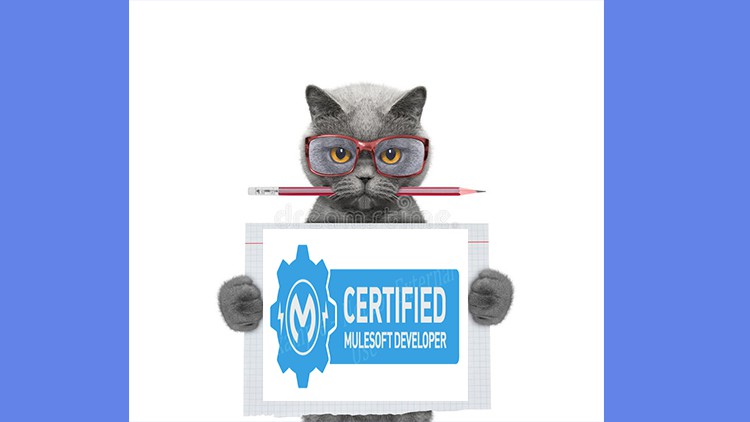
best practice Tests for MuleSoft Developer Level 1 (Mule 4) Certification 2021
What you will learn
Practice Tests for MuleSoft Developer Certification
Practice tips for MuleSoft Developer Certification
Practice same Exam for MuleSoft Developer Certification
Discover all tricks in exam certification
Description
A MuleSoft Certified Developer – Level 1 should be able to successfully work on basic Mule 4 projects with guidance and supervision. The MCD – Level 1 (Mule 4) exam validates that a developer has the required knowledge and skills to design, build, test and debug, deploy, and manage basic APIs and integrations: moving from Anypoint Platform to Anypoint Studio and back.
A MuleSoft Certified Developer – Level 1 should be able to successfully work on basic Mule 4 projects with guidance and supervision. The MCD – Level 1 (Mule 4) exam validates that a developer has the required knowledge and skills to design, build, test and debug, deploy, and manage basic APIs and integrations: moving from Anypoint Platform to Anypoint Studio and back. Certified candidates should be able to:
Use MuleSoft-hosted Anypoint Platform to take a basic API through all the steps of its lifecycle: design, build, deploy, manage, and govern.
Use Anypoint Studio to build, test, and debug basic integrations and API implementations.
Connect to a range of resources including databases, files, web services, SaaS applications, and JMS queues.
Exam Validity
The certification expires two years from the date you pass the exam. To extend the certification validity after this date, you can take the MuleSoft Certified Developer – Level 1 (Mule 4) MAINTENANCE exam.
Course Outline
The MuleSoft Certified Developer-Level 1 (Mule 4) Exam covers the following topcis –
- Explaining application network basics
- Designing and consuming APIs
- Accessing and modifying Mule events
- Structuring Mule applications
- Building API implementation interfaces
- Routing events
- Handling errors
- Transforming data with DataWeave
- Using Connectors
- Processing records
- Debugging and troubleshooting Mule applications
- Deploying and managing APIs and integrations